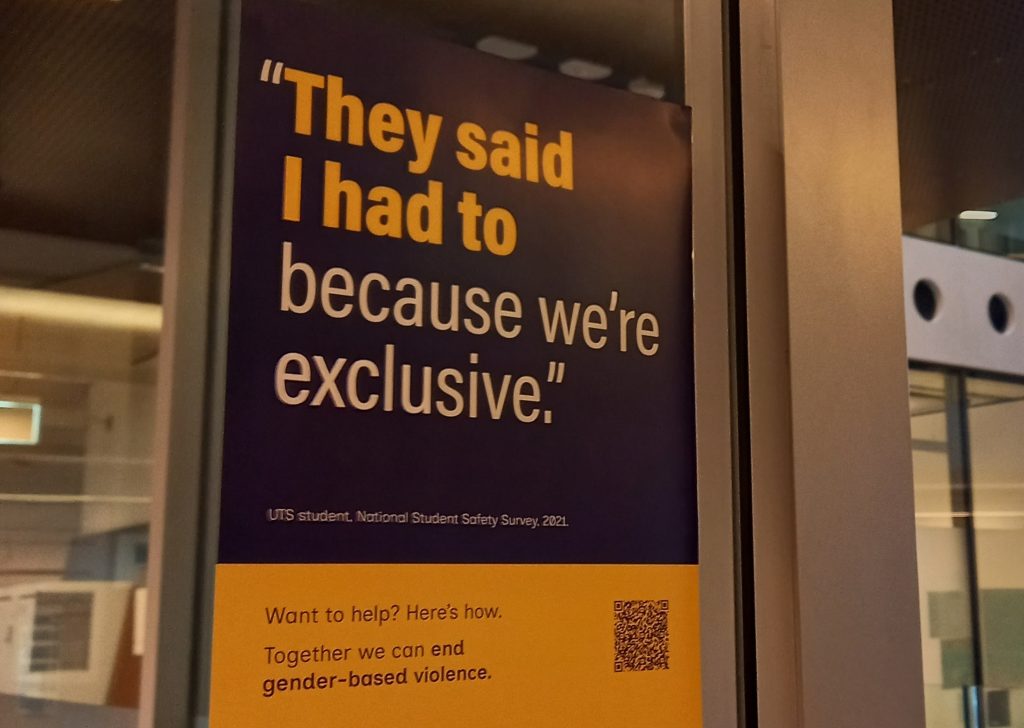UTS staff play a critical role in responding to student disclosures of gender-based violence, ensuring that those affected receive the support they need. In a newly available module on managing disruptive behaviour in the classroom, recommendations for dealing with gender-based disrespect in the classroom included acknowledging the behaviour, discussing the implications and reporting the incident.
Initiatives like Respect.Now.Always (RNA) and Consent Matters offer the foundations of building a safe and respectful campus. Teaching staff can also find support and guidance from UTS when responding to gender-based disrespect.
UTS is committed to the goal of eliminating sexual harm and gender-based violence for its entire staff and student community, now and always.
Reflections on an expansive campaign
The team behind the Respect.Now.Always (RNA) program recently delivered a six-month campaign aimed at raising awareness and encouraging action against gender-based violence. This campaign reflects a whole-of-community approach that spans digital, physical and social platforms.
Here are 4 learnings I took from my experience leading a whole-of-community campaign:
1. Stakeholder engagement is foundational, not optional
To shape this campaign, we sought feedback from key stakeholders across the university, including academics, students and professional staff from faculties, the People Unit, the Office of the Provost, Risk, MCU, and external experts such as Our Watch and Universities Australia. They provided direct feedback into the campaign’s planning, design and execution.
2. The topic requires courage and sensitivity
Gender-based violence is a confronting topic. While UTS champions open dialogue, not everyone is ready to speak publicly. The campaign’s success relied on volunteers and careful planning.
3. Repurpose with purpose
Social content became screen content, which became printed collateral. Interviews were transformed into news articles and disseminated across internal channels – from all-Staff News to faculty newsletters. And now, Education Express!
4. Collaboration is key
The campaign drew on the expertise of faculty and central teams, volunteers, and advocates. External partnerships such as Our Watch and the leveraging of external awareness days such as Sexual Assault and Awareness Month enriched the campaign’s relevance, credibility and reach.


Gender-based violence prevention is everyone’s responsibility
The recently passed Higher Education Code to Prevent and Respond to Gender-based Violence and incoming National Student Safety Survey will put a spotlight on Australian universities’ demonstrated commitment to this cause in 2026. So, the Prevention in Action campaign is really just the beginning.
But what can you, as a member of the UTS community, do to prevent gender-based violence? Here, we are some starting ideas:
- Read up on our Sexual Harm Prevention and Response Policy to understand how we all hold a proactive responsibility for the prevention of sexual harm at UTS
- Be aware of the support services available
- Sign up to deliver RNA at UTS via volunteering, education and capacity-building opportunities

I could see the impact of this campaign across campus when people would pause to take in the content and reflect. Such important work to drive awareness and important conversations that need to keep happening.
Thanks, Zoe! This was a true team effort, and leveraged your valuable insights and expertise to design, as well as execute!
Awesome work!
Thanks, Tash!